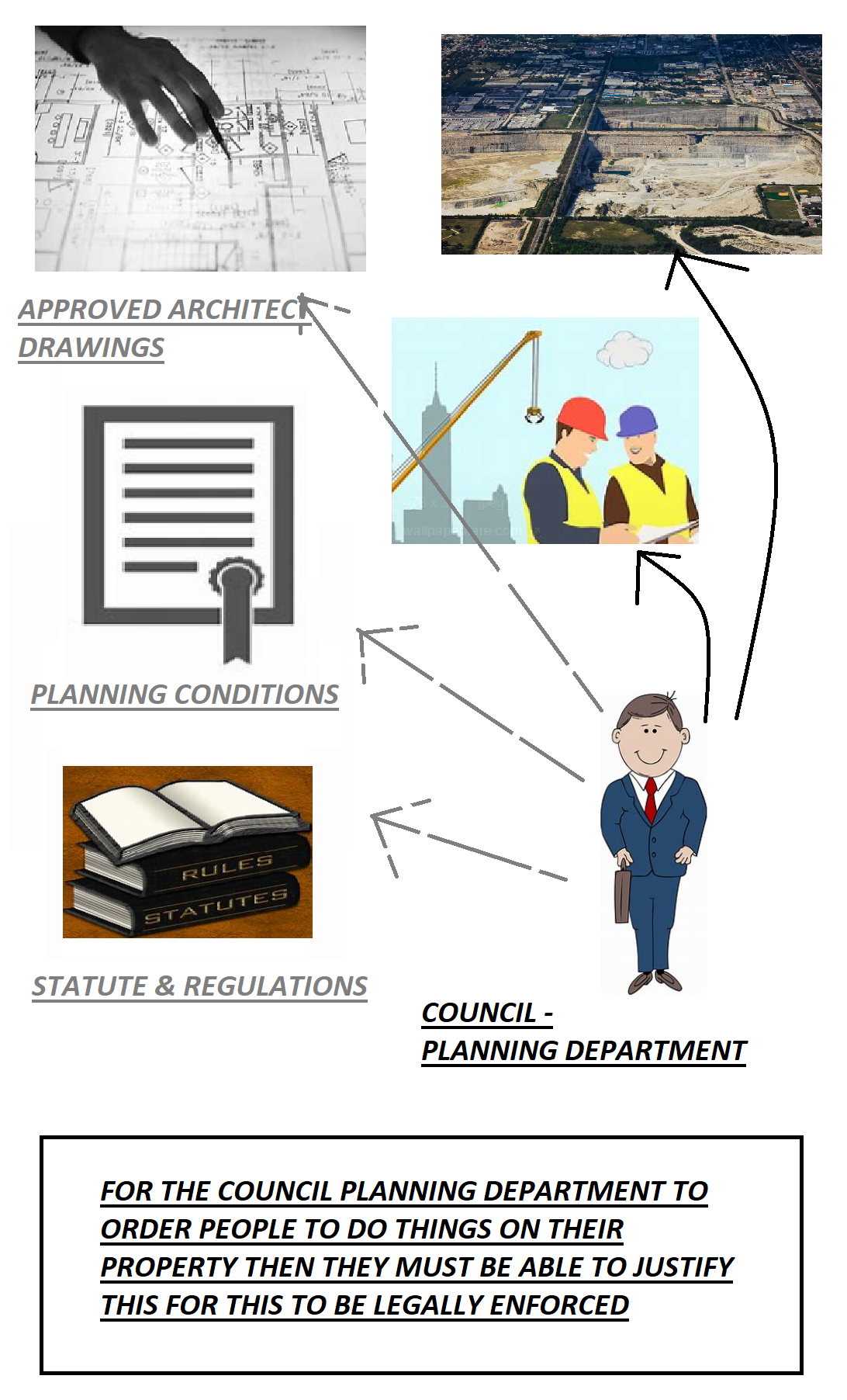Pyx Granite Co Ltd v Ministry of Housing and Local Government 1960, AC 260 HL
Citation:Pyx Granite Co Ltd v Ministry of Housing and Local Government 1960, AC 260 HL
Rule of thumb:If planning conditions required by a Council are not specifically listed, and do not serve any valid purpose related to the development, are they enforceable? No, these conditions are not enforceable.
Rule of thumb:If there is a clause saying that there can be no recourse to Court is it valid? No, it is a human rights violation and an invalid contract term which is unenforceable.
Background facts:
The facts of this case were that this was a quarry where stone was being dug up by Pyx. Pyx were required under the conditions to control the amount of dust that they were releasing into the surrounding environment as well as keep the noise restricted to certain parts of the day etc. However, the Council then started introducing other terms not listed in the planning conditions which were basically just making Pyx jump through hoops which served very little purpose at all. Pyx therefore objected to having to follow these terms.
Parties argued:
Pyx argued that other conditions introduced were unreasonable, unhelpful and unrelated to their purpose, so wanted a Court declaration affirming that they did not have to follow them. The Council argued that they had a condition stating – ‘or any other condition they think fit’. The Council further argued that they excluded the right to appeal to the Court under the conditions.
Judgment:
The Court affirmed that any clause excluding the right to appeal to the Court is invalid – it is a clear violation of the human/constitutional right to a fair trial and this is therefore not a valid term. The Court further held that vague terms like ‘any other condition they think fit’ are meaningless and unenforceable contract terms. It was finally affirmed that the new unreasonable planning conditions were unenforceable and Pyx therefore did not have to follow them.

Ratio-decidendi:
‘The question is whether the statutory remedy is the only remedy and the right of the subjects to have recourse to the courts of law is excluded... It is a principle not by any means to be whittled down that the subject’s recourse to her Majesty’s Courts for the determination of their rights is not to be excluded except by clear words... That is a fundamental rule which from which would not for my part sanction any departure.... There is nothing in the Act to suggest that, while a new remedy, perhaps cheap and expeditious... (supersedes)... the old and, as we like to call it, the inalienable remedy of Her Majesty’s subjects to seek redress in her Court’s is taken away’, Viscount Simmonds
Warning: This is not professional legal advice. This is not professional legal education advice. Please obtain professional guidance before embarking on any legal course of action. This is just an interpretation of a Judgment by persons of legal insight & varying levels of legal specialism, experience & expertise. Please read the Judgment yourself and form your own interpretation of it with professional assistance.

